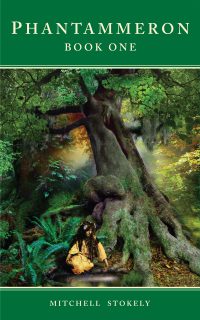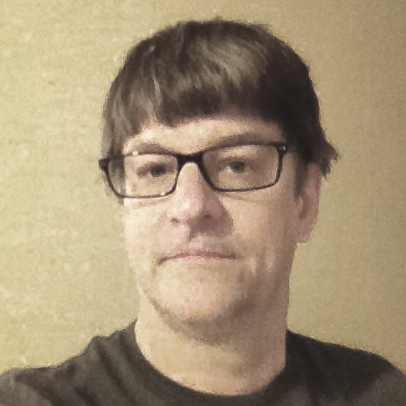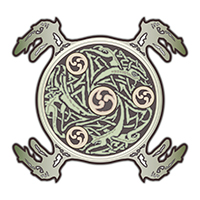Epic Fantasy means different things to different people. In this modern age of the 21st century, epic fantasy has changed yet again, morphing into something closer to dystopian romance or kings fighting for thrones and power that very much resemble the political struggles for love, power, and wealth of modern people in the modern Western World. Where has the “fantasy” gone? Epic fantasy used to be something much richer; something much more closely aligned with myth and real fantasy.
Fantasy writers of the past include a cadre of strange but very imaginative people. When you throw in people like Lovecraft and Pratchett, Howard and Tolkien, even Lewis Carroll, it widens the world of fantasy to include things that go beyond what is thought of as traditional fantasy authors.
But “epic fantasy” used to be very limited in its themes and tropes, as it should be. Writers in epic fantasy of the past (say 50 years ago) had begun to explore the concept of using pagan mythology in their writing, and exploring the vast libraries of lost philology to rejuvenate their own writing with elements of their pagan ancestor’s religions, myths, and archetypes.
Up until 1970, much of what was expressed in epic fantasy was based on mythology – Indo-European, Greek, Celtic, Roman, Scandinavian, and Germanic mythology. But after 1970 something changed. Epic fantasy took on the flavor of stories about the aristocracy – of kings and queens, fights for power and money, love, marriage, greed, and dystopia. Relationship-based themes, romance, and erotica drifted into the medium, along with struggles for money and fame crept in, which furthered the needs for epic fantasy writers to express their personal ennui and personal desires in novel-writing.
After 2000, we saw the dark realm of urban dystopia enter the medium, further expanding the post-modern theme of skeptical views of modern relationships, modern love, fractured families, drives for money and wealth, multiple marriages, divorce, abandoned children, the seeking of the “alpha male”, desire for wealth and fame, gore and blood, abusive relationships, violence, sex, erotica, vampire romance, zombie apocalypse, shades of gray morality, and ideas surrounding Machiavellian motivations behind the vapid hunt for marriage, money, crowns, thrones, and power.
Today in 2015, we seem trapped in a very shallow and dark age in epic fantasy writing. The hyper-focus on dysfunctional character-building and modern struggles for money, marriage, love, sex, and power has distorted and perverted modern epic fantasy to the point it is almost unrecognizable.
But buried beneath all of these perverted and distorted “modern themes” of sex, love, power, greed, and violence lies the still hidden and magical realm of myth and mythopoeia, which epic fantasy writers 50 years ago understood and used. Christopher Tolkien’s son in 1977 completed the epic mythopoeia, The Silmarillion, which in one giant leap, introduced us to his father’s original vision for epic fantasy – a medium that had the unbelievable potential to free us from ourselves and our needs in the modern world, and through the reading of pagan mythology, develop the unbridled realm of our own psychological and mythical landscape through epic fantasy writing.
Finally, through The Silmarillion, we learned we could write our own mythologies and thus expand epic fantasy writing into a truly heroic venue unknown to fiction writers before.
But oddly, the modern world almost wholly rejected Tolkien’s original view of epic fantasy shown so brilliantly in The Silmarillion. Even the New York Times in 1977 wrote scathing reviews of his mytho-poetic novel, which J.R.R. had dreamed of publishing even before the writing of the Hobbit, published in 1937. Why? What was it about this greater and more imaginative view of epic fantasy that Tolkien himself loved so much, which our world has seemed to reject? Why did we embrace the themes of kings, rings of power, and dystopia found in the Lord of the Rings, but reject the illusive and graceful Celtic quintessence of The Silmarillion? That book held within it the history of the Lord of the Rings, yet we failed to understand and appreciate it fully. Why?
The Silmarillion is very much a mythopoeia and engaged with the ancient pagan mythologies of the manuscript Tolkien studied – The Prose Eddas, the Elder Edda, The Kalevala, the Mabinogion, and Beowulf. This is why so few understand it. Its genre confounds most readers and writers today. They just do not understand mythopoeia, nor do they have the character to appreciate its subtleties, its humanity, its metaphysical and religious themes. Its lost to us. How many fantasy writers today have read any of those Western Indo-European manuscripts? How many epic fantasy writers today even care? And so, we should all question why we have abandoned myth and mythology and forsaken the medium of epic fantasy for urban dystopia and modern themes. Surely we should see that the wide and expansive genres found in fiction itself are able to carry or umbrella pop culture fiction, while leaving epic fantasy to its narrower venue? But maybe that’s why Tolkiens true vision has been lost…..it has all gotten muddled together somehow, and unable to free itself from the abominations of shallower fantasy tropes embedded in it today.
Epic Fantasy Needs to go Back to the Old Model
It is my contention today, that epic fantasy needs to go back to being about “epic fantasy”. We need to return to The Silmarillion of Chistopher Tolkien as a central fount, not only seek to understand the wider realm of fantasy writing it portrays, but also to begin to return to the older themes of epic fantasy that sustained so much of the imagination and reflections on ancient mythology 50 years ago. It has been lost in today’s world. And it has been changed back into modern fiction, not fantasy, with modern themes of money, power, marriage, and love. It has lost its original purpose and themes, forgotten its “fantasy” upbringing, and rejected its own premise of escapism via pagan mythology, mystical monsters and beasts, wizards and enchantment, fairy tales, elves, giants, and trolls. Its lost the adventure-tale, the hero-journey motif, the tragic hero concept itself, which has been replaced with character development and protagonists looking for sex partners and battle-lords seeking to obliterate their enemies and the world for fame, fortune, and power. All these things Tolkien hated about the modern world and rejected but we have strangely embraced.
This is not as much a criticism of modern writers as much as it is a litmus test to determine how far epic fantasy writing has “drifted” from its original genre and purpose. How far have we all drifted from mythology, and from myth-making? How much do we suffer, and the genre suffer from the fact we no longer write about trolls and elves and enchantment, but instead write about greed, love, sex, and power? Those are modern needs, modern themes. But mythology is about psychology, about Jungian archetypes, of the spirit, of the self. We need to return to the personal, the spirit, to the individual separate from modern society, modern love and romance, modern violence and politics, and greed. Fantasy and really all of fiction has thrown away those ideals.
In ending, this article is a very biased and subjective view, I realize. But it is a dire message for kids today and writers entering the epic fantasy world to think about the “old view” of epic fantasy writing and myth-making, and how the genre can return to its imaginative beginnings, if we desire it. It is about helping everyone entering the world of epic fantasy, both reader and writer, seeking to return to its original themes – of goblins and monsters, magic and wonder, good versus evil, natural wonders, wizards and giants, magic swords and rings, and tragic heroes – and helping new writers reject the modern ones.
But to return to its origins, we all have to regain a piece of our humanity first, our original view of good and evil in our modern world, of a stringent rejection of violence and Machiavellian characters, rejection of the hyper-focus on relationship and marriage-based themes in fantasy, reject our shallow needs to insert our own ennui and modern sexual drives and unhappiness into story, resolve ourselves to shy away from the temptation to insert our own dystopian views of modern society, to avoid rampant gore, racism, and hate in books, reject urban struggle tales, inter-family strife, power struggles over continents, Anglo-Saxon 100 year war interpretations, and the incessant striving for attention, fortune, and fame in story-telling, all of which has super-saturated fantasy novels today with the author’s personal frustrations, needs, fantasies, and desires. Fantasy should NOT be about us. It should FREE us from us. Epic fantasy should be about epic fantasy. How simple can I put it!
Once we recognize modern failings in epic fantasy, and how far we have drifted from its central premises and tropes, developed over 50 years ago in Tolkien’s age, we can return to the rich, imaginative fiction that once helped us as writers and readers escape the modern world and its struggles, and enter the richer, kinder, more moral, more ethical, more human, and more magical inner realms of our own creative minds and dreams.
E. M. Stokely



